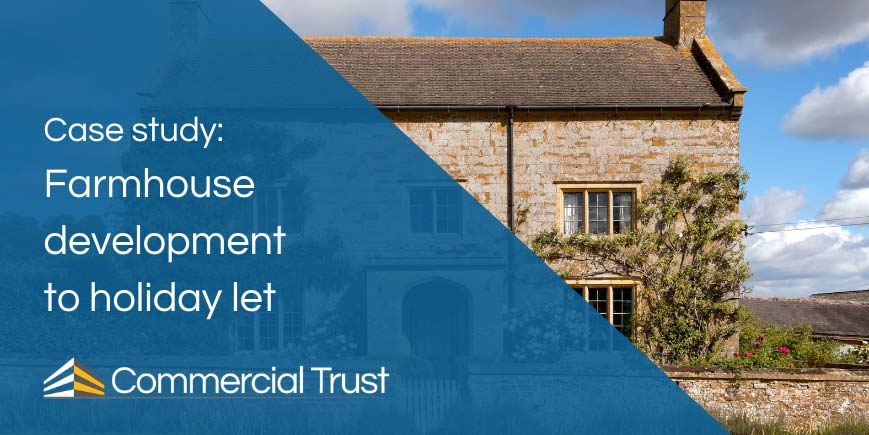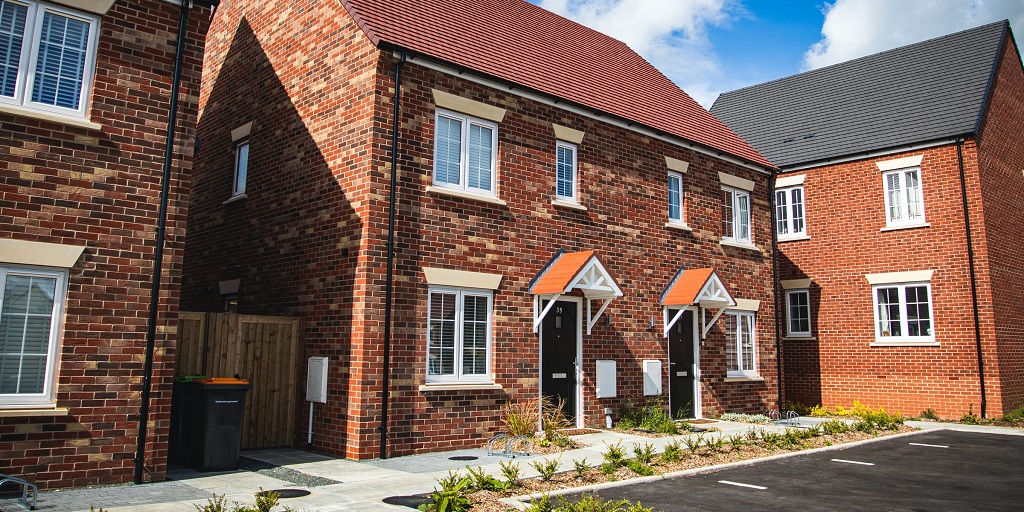This information should not be interpreted as financial, tax or legal advice. Mortgage and loan rates are subject to change.

Categories: guides | development finance
Securing development finance for your project is a fundamental first step as a property developer. Whether you’re building a group of small houses, or a large commercial complex, finding the right development finance can be the difference between being profitable or not, so it’s vital to find the best option.
The decision faced by property developers is similar to those mortgaging. Do you go straight to a lender, or should you use a broker?
Content
Why use a development finance broker?
Using a broker can be a real benefit. A broker offers a service where they find you the best loan you can get from a wide range of lenders and product options.
The best brokers have access to a broad range of lenders, all with different requirements, criteria, and rates. This offers you an array of flexibility in the borrowing you can get.
The broker will then take the time to understand your particular situation and match you to the most suitable borrowing solution from amongst this range of options.
Choosing to outsource the legwork and expertise to a professional can be a smart move, as it can save you both time and money and increases the likelihood of your application being accepted.
Save time
As a property developer, there will certainly be other pressing matters demanding your attention in order to see the project through the completion.
A broker can take the pressing matter of securing development finance off your hands, and give back some of your time so you can dedicate it to other aspects of the project.
A broker has specialist tools to pre-qualify your case against lender criteria, so they can quickly find an appropriate deal for you.
Save money
Using a development finance broker can save you money, and in turn make your project more profitable.
Of course this depends on the quality of the broker, but by seeking a trustworthy professional to identify and manage your loan application, you are vastly increasing your chances of getting good quality financing – thereby lowering the cost of borrowing, and increasing profit margins.
What’s more, a broker will check all the deals you qualify for against one another, to find you the lowest cost option.
How to pick a good development finance broker
Not all brokers offer the same quality of service, here are some tips on finding a good broker:
Look at their reviews
A good way to gauge whether a broker is worth dealing with is by looking at what people who have already worked with them are saying.
Reviews are a good way to get a true insight into the quality of a broker’s service, and provides expectations on what to expect when you work with them.
Don’t expect 100% perfection across the board, in fact if there is no criticism at all this could be a red flag, but looking at how criticism is dealt with by the broker will tell you as much about their service as excellent feedback.
Find out which lenders they work with
The whole point of working with a broker is to get access to as many development finance lenders as possible and to benefit from a great service. If a broker is tied to only a few lenders, this will narrow your borrowing options.
A good development finance broker should work with both high street and specialist lenders. High street lenders tend to take lower risk deals but offer keener interest rates. Specialist lenders offer more flexible borrowing options, albeit rates may be a little higher.
Find out what fees they charge
A broker should always be happy to discuss the fees they charge with you. Working with a broker who charges a fee means you should expect exceptional levels of service. Check that it is fair and represents the work being done for you.
From first hello to application and completion, all the work that can be done by the broker should be, without you needing to get involved.
How long have they being in operation?
Experience in the marketplace can make a real difference to the service you receive. As with any industry, the longer a business has been in operation the greater the stability of the firm. The amount of knowledge the employees have should be greater and the more established the firm’s relationships with lenders should be.
You can cross-check these suppositions with reviews of the company to establish your confidence that this is the case.
Talk to their staff
There is no better way to get a feel for a company than to talk to their employees. If you have a great deal of development finance knowledge you can press an advisor on what they know and how they can help you.
But, even if you know very little, you can find out what level of support you are going to get, establish to what extent the broker is prepared to educate you on their subject and walk you through the details in a way that you come away confident in what they are saying.
Standard vs premium services
Just as with any product or service, there are cheap brokers, and more expensive ones. The charges should be appropriate for the work and expertise on offer.
It is important to be able to tell the difference between the two as the quality of service you receive is likely to be tied to the broker fee.
By going with premium service brokers, you vastly increase your chances of securing the best financing available to you.
Premium brokers will often have access to exclusive rates, as well as much better relationships with the lenders they work with. And the expertise to get you the best possible deal.
Premium brokers will also often have teams of account managers and admin staff dedicated to pushing your application to completion, so you have a stress-free experience and get access to funds in a timely manner.
With brokers, you get what you pay for.
What documents will you need to provide a development finance broker?
Once you have chosen a broker, and they have sourced a product best suited to your needs, they will ask you to provide certain documentation.
The documentation that will be required will vary depending on the lender requirements, which differs from one to another.
However, the most typical types of paperwork asked of clients include:
- A schedule of works.
- Evidence of previous experience with projects of a similar size and scope.
- Written evidence of planning permission.
- A valuation of the property/land currently & an estimated value at the time of sale.
- Documentation detailing the construction costs.
- A written plan detailing a viable exit strategy, i.e. how are you going to pay back the development finance?
However, it should be reiterated that this is not an exhaustive list – the paperwork asked for by a specific lender varies. These, however, are the most typical.
Commercial Trust is a development finance broker
Commercial Trust has access to a wide range of lenders across the United Kingdom. This means by working with us you can expect to get a great deal matched to your current and long terms strategy.
We can also help with long-term financing, if you are intending to pay back your development finance and let out the finished property(ies), using a buy to let or commercial mortgage, depending on the property type.
To discuss your project with a professional, get in contact with us now.


